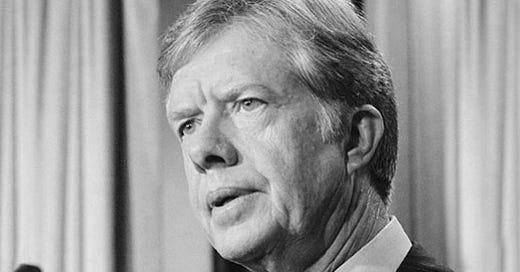Jimmy Carter and Craft Beer
I admit that the post I wrote that related to Jimmy Carter only related to him in the sense that he had impact on the trajectory of the nation of Iran. However, Carter does have a positive domestic legacy when it comes to beer, and I’m not talking about his younger brother Billy’s promotion of “Billy Beer”.
In the late 1970s, the economy was not doing so…
Keep reading with a 7-day free trial
Subscribe to Historica Americana to keep reading this post and get 7 days of free access to the full post archives.



